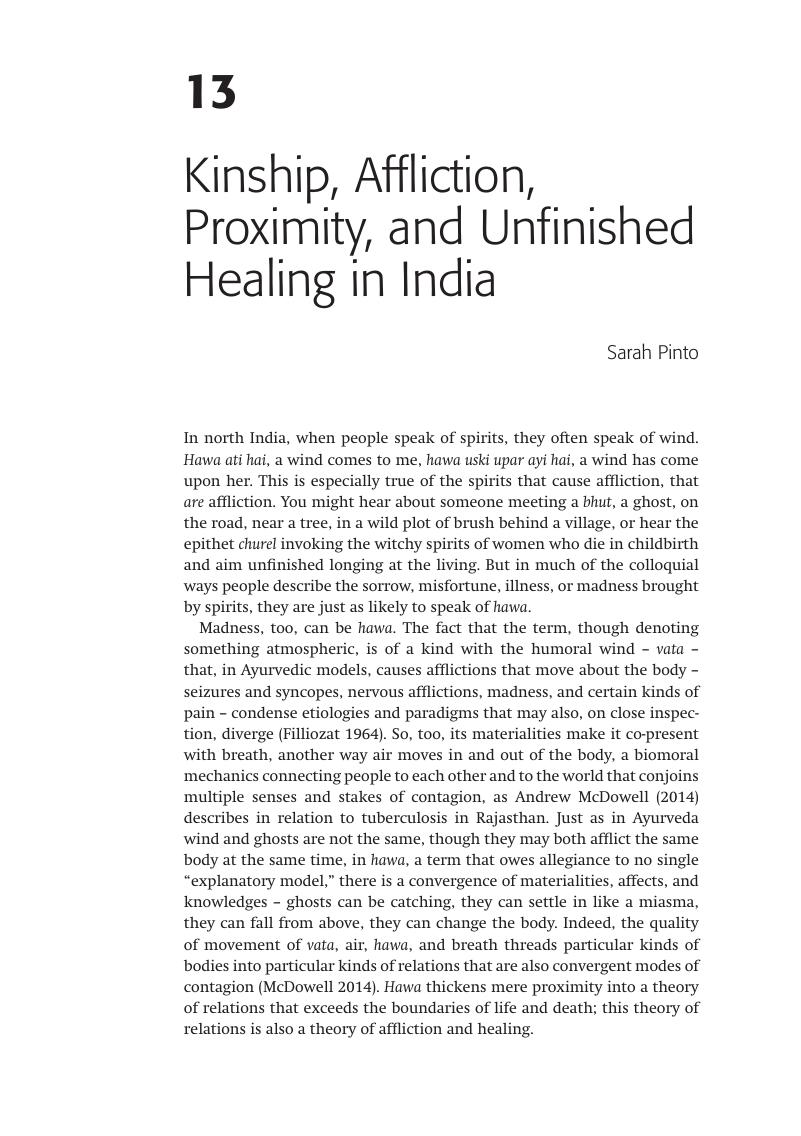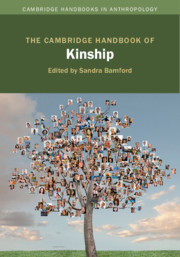Book contents
- The Cambridge Handbook of Kinship
- Cambridge Handbooks in Anthropology
- The Cambridge Handbook of Kinship
- Copyright page
- Contents
- Figures
- Tables
- Contributors
- 1 Introduction: Conceiving Kinship in the Twenty-First Century
- Part I Opening Frameworks
- Part II The (Non)Biological Basis of Relatedness
- Part III Reproducing Society: Gender, Birth, and Power
- 12 Kinship Knowledge and the State: The Case of Argentina’s Adult “Living Disappeared”
- 13 Kinship, Affliction, Proximity, and Unfinished Healing in India
- 14 Reproductive Remix: Law, Kinship, and Origin Stories
- 15 Selecting for Sons: Kinship As a Product of Desire
- Part IV Transnational Connections
- Part V Technological Conceptions
- Part VI Kinship and the Nation-State
- Index
- References
13 - Kinship, Affliction, Proximity, and Unfinished Healing in India
from Part III - Reproducing Society: Gender, Birth, and Power
Published online by Cambridge University Press: 22 April 2019
- The Cambridge Handbook of Kinship
- Cambridge Handbooks in Anthropology
- The Cambridge Handbook of Kinship
- Copyright page
- Contents
- Figures
- Tables
- Contributors
- 1 Introduction: Conceiving Kinship in the Twenty-First Century
- Part I Opening Frameworks
- Part II The (Non)Biological Basis of Relatedness
- Part III Reproducing Society: Gender, Birth, and Power
- 12 Kinship Knowledge and the State: The Case of Argentina’s Adult “Living Disappeared”
- 13 Kinship, Affliction, Proximity, and Unfinished Healing in India
- 14 Reproductive Remix: Law, Kinship, and Origin Stories
- 15 Selecting for Sons: Kinship As a Product of Desire
- Part IV Transnational Connections
- Part V Technological Conceptions
- Part VI Kinship and the Nation-State
- Index
- References
Summary

- Type
- Chapter
- Information
- The Cambridge Handbook of Kinship , pp. 306 - 323Publisher: Cambridge University PressPrint publication year: 2019



